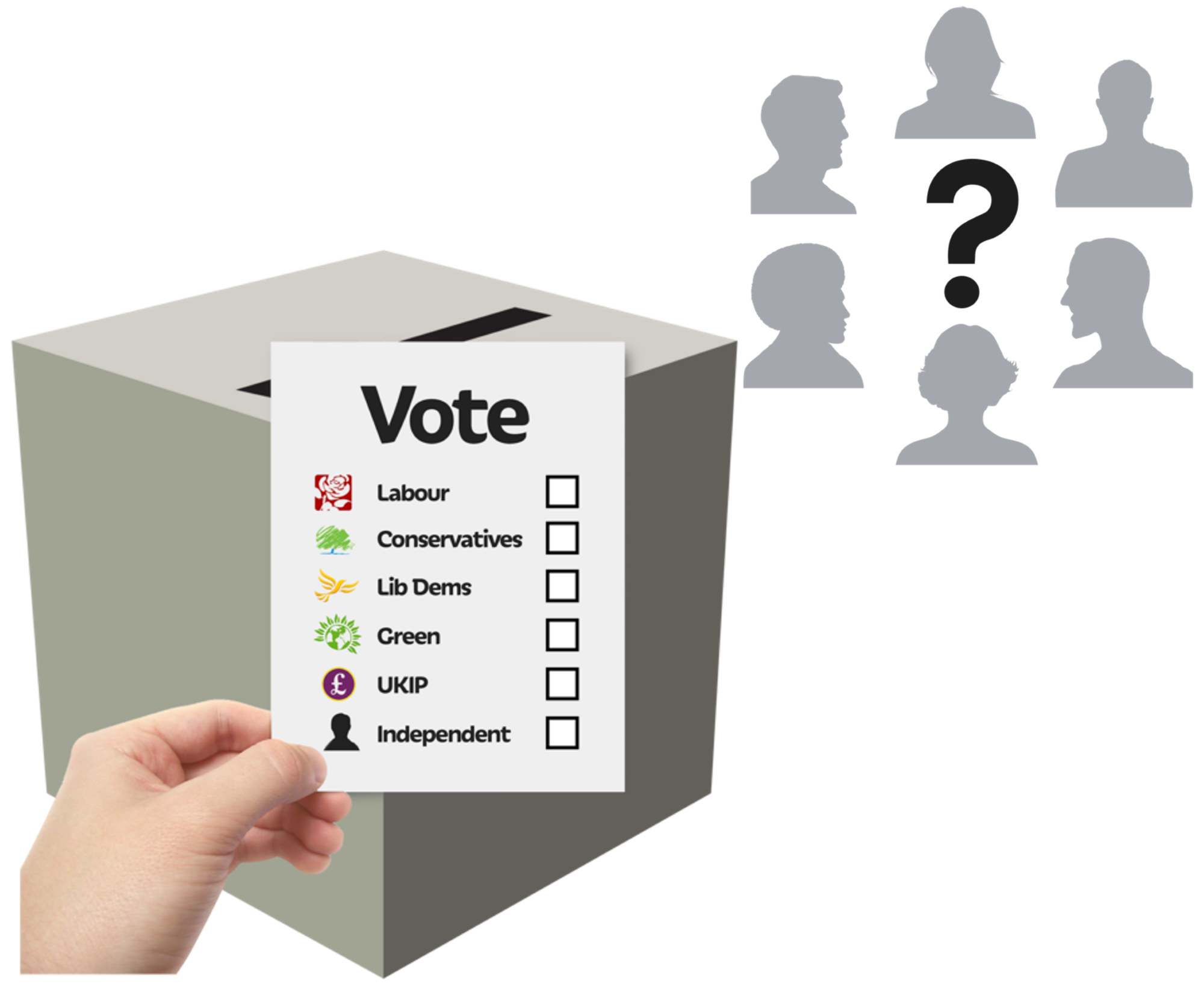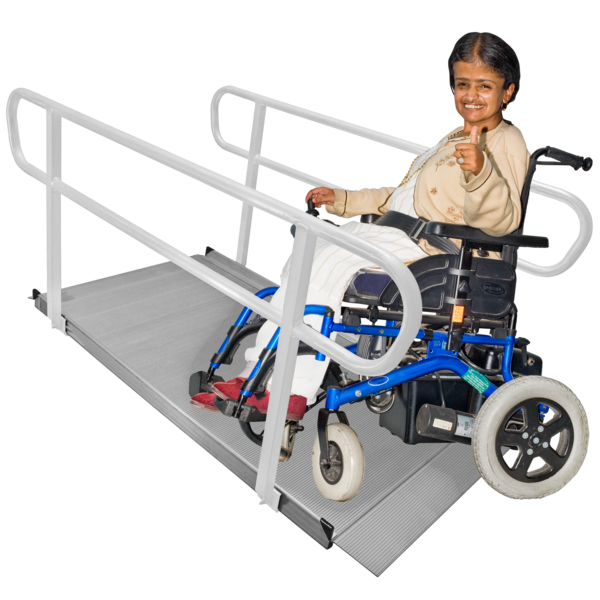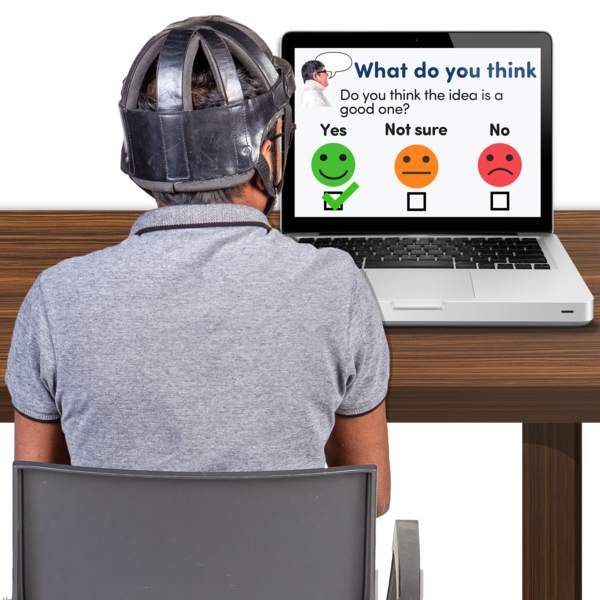Learning disability
 A learning disability is to do with the way someone's brain works. It makes it harder for someone to learn, understand or do things.
charity Mencap has urged the Conservatives, Labour, Liberal Democrats, UKIP and Green Party to ensure 1 million (2) adults with a
learning disability
A learning disability is to do with the way someone's brain works. It makes it harder for someone to learn, understand or do things.
charity Mencap has urged the Conservatives, Labour, Liberal Democrats, UKIP and Green Party to ensure 1 million (2) adults with a
learning disability
 A learning disability is to do with the way someone's brain works. It makes it harder for someone to learn, understand or do things.
are brought into the General
Election
A learning disability is to do with the way someone's brain works. It makes it harder for someone to learn, understand or do things.
are brought into the General
Election
 An election is when people choose who should be in charge of something. This could be in charge of a group, an area, or the country. People choose by voting. The person with the most votes wins.
process by producing their manifestos in an
accessible
An election is when people choose who should be in charge of something. This could be in charge of a group, an area, or the country. People choose by voting. The person with the most votes wins.
process by producing their manifestos in an
accessible
 Accessible means something is easy for people to use or join in with. For example: Accessible writing means the writing is easy to read and understand.
format.
Accessible means something is easy for people to use or join in with. For example: Accessible writing means the writing is easy to read and understand.
format.
Without manifestos being published in ‘
easy read
 Easy Read is a way of making written information easier to understand. Pictures are usually added next to the writing.
’ format, people with a learning disability say they struggle to understand the often complex political rhetoric, and feel unable to make an informed democratic decision.
Easy Read is a way of making written information easier to understand. Pictures are usually added next to the writing.
’ format, people with a learning disability say they struggle to understand the often complex political rhetoric, and feel unable to make an informed democratic decision.
Ismail Kaji, who has a learning disability and works at Mencap, has launched a
campaign
 A campaign is when people work together to try to change something.
calling on the major parties to produce their manifestos in easy read format, alongside their main manifestos, to ensure people with a learning disability have the same time as any other voter to understand the election and make an informed decision.
A campaign is when people work together to try to change something.
calling on the major parties to produce their manifestos in easy read format, alongside their main manifestos, to ensure people with a learning disability have the same time as any other voter to understand the election and make an informed decision.
In 2015, Easy Read guides and manifestos to the General Election were the most downloaded materials from Mencap’s
website
 A website is a page you can go to on the internet like Google or YouTube.
(3).
A website is a page you can go to on the internet like Google or YouTube.
(3).
On Monday (8 May) Mencap will launch an Easy Read guide, in partnership with Electoral Commission, to provide accessible information for people with a learning disability on the election, how to register to vote and voting on election day. Mencap has also produced a guide for supporters of people with a learning disability to help them vote.
Ismail Kaji said:
It is very, very important to have Easy Read materials available during elections so that people with a learning disability can understand the promises the parties are making, and decide who to vote for.
Without Easy Read, people with a learning disability will find it really difficult to vote, and could be excluded from the election completely. That is not acceptable. We deserve to be included and have the same opportunity to have our voices heard.
It is scary to think that if the parties won’t produce an Easy Read Manifesto, what that means if they are elected in to power. It makes you think, ’what happens to people with a learning disability in the future?’
Rob Holland, Parliamentary
Manager
 A manager is a boss at work. They tell you what you need to do and give you support if you need it.
at learning disability charity Mencap, said:
A manager is a boss at work. They tell you what you need to do and give you support if you need it.
at learning disability charity Mencap, said:
People with a learning disability are often the last group to be listened to, but the first to feel the effects of Government policy. The speed of this election means there is a real danger it will be completely inaccessible to people with a learning disability. This makes it all the more important that the parties produce easy read versions of their manifestos.
Easy Read guides and manifestos make confusing and difficult political language accessible. In previous elections the Easy Read guides have been our most downloaded documents, showing the real desire from people with a learning disability and their families to understand what the parties are promising and make an informed decision as to who to vote for.
Failing to produce easy read manifestos mean the parties risk losing votes of a million people and excluding people with a learning disability from the process completely.
-ENDS-
For further information or to arrange interviews, please contact the Mencap press office on 020 7696 5414 or media@mencap.org.uk or for out of hours 07770 656 659.
Notes to editors
(1) Mencap voting
survey
 A survey is when someone asks you to answer some questions.
A survey is when someone asks you to answer some questions.
Mencap surveyed 553 people with a learning disability between 6 June and 18 August 2014.
Q: Have you ever voted before? (547 answered)
Yes 58%
No 41%
Q: Would you like to vote in the future? (535 answered)
Yes 70%
No 29%
Q: Did you vote in the recent local elections in May 2014? (515 answered)
Yes 36%
No 64%
Q: I wanted to vote in the past, but... (236 answered)
… Registering to vote was too hard 60%
… I did not want to vote for any of the political parties 56%
… I was turned away from the polling station because I had a learning disability 17%
(2) 1 million votes - We estimate that there are 1,026,783 adults (aged 18+) with a learning disability in the UK. This is a crude estimate of the number of people with a learning disability in the UK, using population data (ONS 2016) and based on the prevalence of learning disability being around 2% for adults (see Hatton et al. 2016).
Sources
Hatton, C., Glover, G., Emerson, E. and Brown, I. (2016) People with Learning Disabilities in England 2015: Main Report. Learning Disabilities Observatory, Public Health England.
ONS (2016) MYE2: Population estimates by single year of age and sex for local authorities in the UK, mid-2015. http://www.ons.gov.uk/peoplepopulationandcommunity/populationandmigration/populationestimates/datasets/populationestimatesforukenglandandwalesscotlandandnorthernireland
(3) In 2015, Mencap’s GE2015 election materials were the most downloaded materials from the website that year at 33,755.
Easy read materials
In the UK, there are 1 million people with a learning disability of voting age. Easy read is widely recognised as the best way for people with a learning disability to understand information. Easy read uses simple language and pictures to make information easier to understand for people with a learning disability.
About Mencap
There are 1.4 million people with a learning disability in the UK. Mencap works to support people with a learning disability, their families and carers by fighting to change laws, improve services and access to
education
 Education is when you learn things. When you fill in a form to get a job, education means you write where you went to school, college or university.
,
employment
Education is when you learn things. When you fill in a form to get a job, education means you write where you went to school, college or university.
,
employment
 Employment means having a job.
and
leisure
Employment means having a job.
and
leisure
 Leisure is when you have time to do things you enjoy like playing sports or going to the pub.
facilities. Mencap supports thousands of people with a learning disability to live their lives the way they want.
Leisure is when you have time to do things you enjoy like playing sports or going to the pub.
facilities. Mencap supports thousands of people with a learning disability to live their lives the way they want.
For advice and information about learning disability and Mencap services in your area, contact Mencap Direct on 0808 808 1111 (9am-5pm, Monday-Friday) or email help@mencap.org.uk
What is a learning disability?
A learning disability is a reduced intellectual ability which can cause problems with everyday tasks – for example shopping and cooking, or travelling to new places – which affects someone for their whole life.
People with a learning disability can take longer to learn new things and may need support to develop new skills, understand difficult information and engage with other people. The level of support someone needs is different with every individual. For example, someone with a severe learning disability might need much more support with daily tasks than someone with a mild learning disability.
Learning disability is NOT a mental illness or a learning difficulty. Very often the term ‘learning difficulty’ is wrongly used interchangeably with ‘learning disability’.